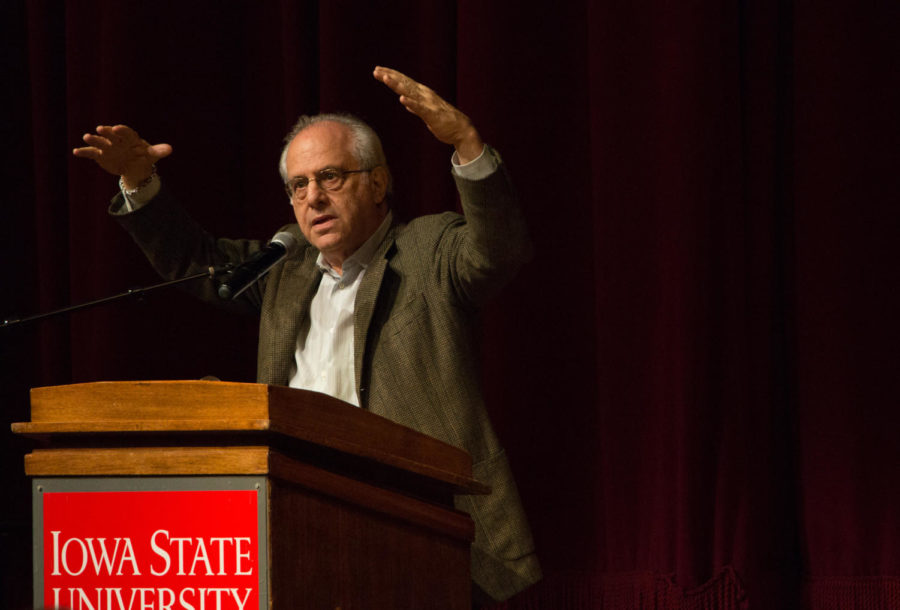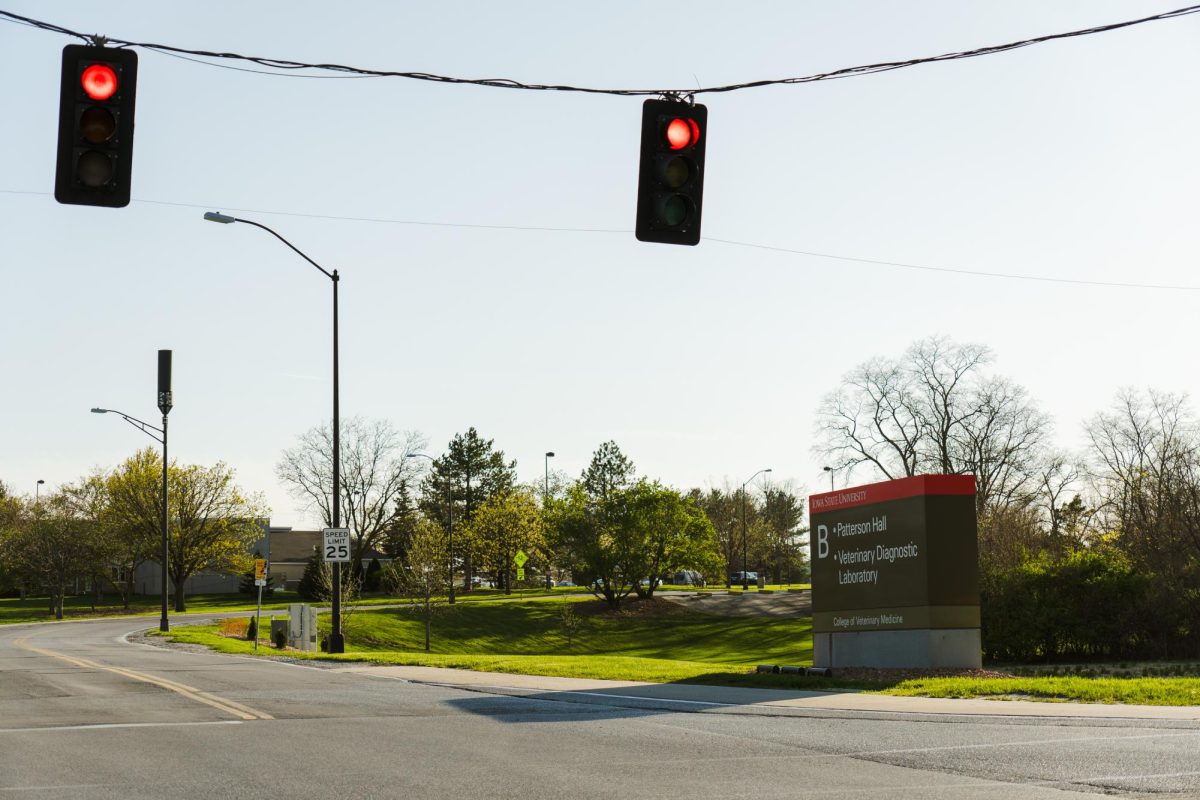Capitalism critic Richard Wolff speaks at Iowa State
Emily Blobaum/Iowa State Daily
Richard Wolff, a professor of economics at the University of Massachusetts, speaks Monday evening at the Memorial Union. Wolff is also an author of many books relating to economics, including “Democracy at Work: A Cure of Capitalism”.
November 16, 2015
Richard Wolff’s answer for curing capitalism is more democracy.
The economic emeritus professor at the University of Massachusetts has been a longtime critic of capitalism and has produced numerous literature on his criticism, including his latest book titled “Democracy at Work: A Cure for Capitalism.”
Wolff hosts a weekly syndicated radio show titled “Economic Update” and has appeared on shows such as “Real Time with Bill Maher.”
“We are now going through the second collapse of modern capitalism,” Wolff said to ISU students.
Wolff spoke in the Great Hall of the Memorial Union on Monday night about the economic issues the United States has, and ways to change and prevent them.
“If you lived with a roommate as unstable as this system you would’ve moved out a long time ago,” Wolff said.
Wolff said the United States has now reached the new landmark of the richest 1 percent owning half of the wealth.
“This is a system that keeps producing inequality in our society,” Wolff said.
Wolff told students they are the first generation in American history to face today’s bachelor’s degree being invaluable in obtaining a career.
“We are no better at preventing economic crises,” Wolff said.
The economics professor said during the depression, people did not wait for a resolution, they fought for one.
“Millions of Americans joined labor unions,” Wolff said.
Roosevelt knew where the money was and he went to the wealthy and corporate leaders in order to help the poor, creating social security, unemployment help and the minimum wage, Wolff said.
“You tax the rich to help everyone else,” Wolff said.
Wolff said the people in the top tax bracket being taxed at 94 percent was more effective, but today this idea is considered political suicide.
“It’s not political suicide,” Wolff said.
The professor said Roosevelt got elected three times, proving the high tax rate was not political suicide.
Wolff said wages have stayed flat during the last 40 years, but worker productivity has gone up, contributing to economic distress.
“Americans do more paid labor per year than any other country on the planet,” Wolff said.
Before the 70s, wages had continued to rise, and America was industrialized. Now, corporations are outsourcing, and almost all products are made overseas, Wolff said.
“Capitalists have left,” Wolff said. “Nothing hardly is made here.”
Wolff said U.S. citizens used to have their clothes made 10 miles away, and now it is 10,000 miles away, causing less jobs.
Wolff said the future of the U.S. economy can be seen in the economic disaster that has happened in Detroit, Mich., because of the auto industry leaving the city.
“We have to change the way business is organized,” Wolff said.
Wolff said the solution is to democratize enterprises, allowing all employees to be involved in decision making. Employees would do their regular job Monday through Thursday and then sit in meetings on Fridays, Wolff said.
“You want to do something about inequality, there’s your answer,” Wolff said.
Wolf said the democratizing of enterprises would decrease outsourcing, decrease corporate pollution, increase more equal pay and close the inequality gap.
“Nothing else has worked,” Wolff said.
He added that workers should be their own owners and board of directors, naming the corporation Mondragon in the Basque region of Spain as an example.

















